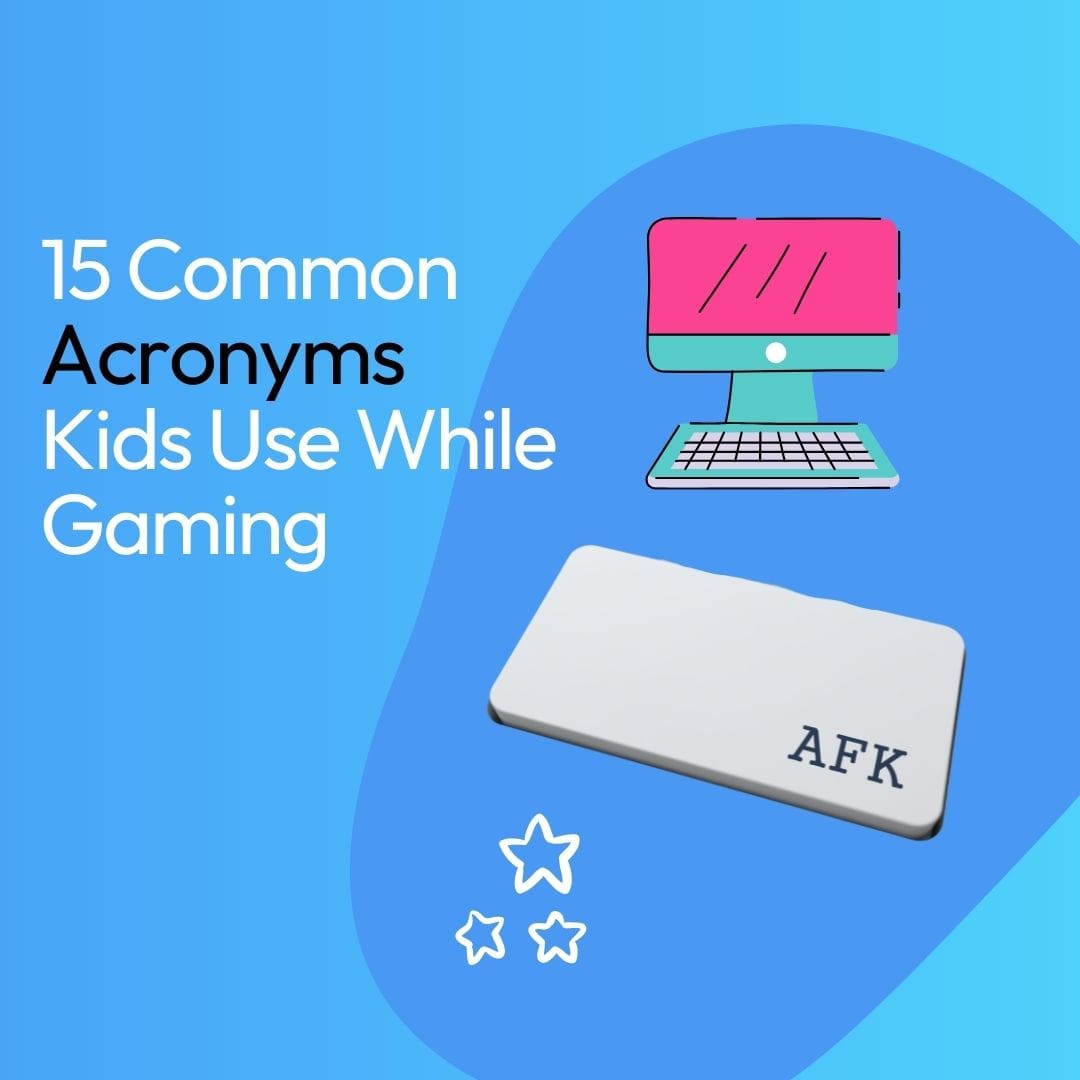The list of acronyms seem longer than the list of words in the English language these days. We will share 15 common gaming acronyms here.
I’m not *entirely* sure when I became uncool.
My oldest, 12, claims she is absolutely certain I was never actually cool, so there was no way for me to slide into uncool territory. I am sure, though, that back in the day, I was cool. After all, like many in my generation, my AIM profile once said “Find me on Facebook,” and I’ve said LOL for longer than my kids hae been alive. (“Mom, no one except you actually says LOL. Like, you only type it. Never say it.” Kids.) But here we are.
I’m pretty good with the slang language people use on Facebook. I know that TL;DR means “too long, don’t read,” and that IYKYK means “If you know, you know.” I’m even pretty good with what all of the various emojis people use to mean things other than what they actually are. I’m looking at you, eggplant emoji.
But gaming slang is a whole new thing. Gamers use a number of acronyms (or internet slang) that took me some time to figure out. So, here’s your cheat sheet to know what your kid is saying in their gaming chat sessions (so you know whether or not you should be concerned!).

15 common acronyms: Decoding the Language Kids Use While Gaming
AFK: Away From Keyboard
Smurf: When a high-level player creates a new account to play against lower-ranked players. Sometimes players do this to play against friends who aren’t as good; sometimes players do it simply to dominate amongst less-skilled players.
Camping: The act of staying in one spot or hiding in one spot in a first-person shooter game, most often used as strategy to ambush other players.
Bot: A non-playable character in a game. This character is played by the computer and not by a human player.
Toxic: A player who uses bad language or makes inappropriate remarks.
Bullet Sponge: A non-playable character who is difficult to kill.
Ganking: When several players gang up on one player with the aim to eliminate the player.
Poggers: This term is mostly used in Twitch. It expresses extreme joy.
Aimbot: A software tool that automatically aims a weapon in a first-person shooter game. The use of this software is considered cheating.
Buff/Nerf: To buff something, in a video game, is to increase its power. To nerf, or de-buff something, then, is to decrease its power in a video game.
Ragequit: To ragequit a game is to quit because you are so frustrated by losing or performing poorly within the game.
HUD: This is short for Heads up Display. This is the informative grid, usually on the top of a player’s screen, that displays their stats.
Easter egg: A hidden prize or message within a game. This is also sometimes used by companies running promotional campaigns- they hide discount codes or prizes around their website and users must hunt for the info the same way they would hunt for an Easter egg at an Easter egg hunt.
Grinding: When a player engages in a repetitive task to gain points for the game.
DLC: Short for downloadable content. DLC is typically released by a game’s manufacturer at any point after the launch of a game. It oftentimes includes new characters or experiences within the game.
GG: Good Game
Truth be told, many of the things our children say on a daily basis are difficult to understand. When asked what something means, they quickly roll their eyes with the classic, “you’re so lame mom” look. You may not know what every term means, but you can protect them from things being said online that is not appropriate with a one month free trial from Kidas.
What slang does your gamer use that you don’t understand or realize the meaning of?